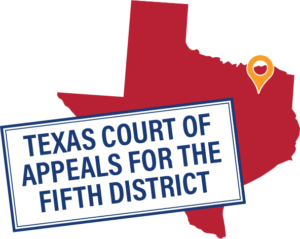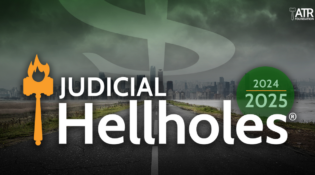Justices of the Fifth District Court of Appeals (Fifth Court as it is referred to by the locals) repeatedly misapply established U.S. Supreme Court and state precedents and procedures, requiring review and reversal by the Texas Supreme Court. In the first half of 2022 alone, the Texas Supreme Court unanimously overturned five Fifth Court decisions that addressed significant civil justice issues. The Fifth Court consistently (and wrongly) sided each time with plaintiffs and expanded liability.
The Fifth Court is one of 14 appellate courts in Texas and has jurisdiction over state trial court decisions in the northeastern corner of the state, including Dallas, Collin, Grayson, Hunt, Rockwall and Kaufman counties. Composed of an elected Chief Justice and twelve justices, who serve six-year terms, the appellate court typically decides cases in three-justice panels.



 Apex Doctrine Ignored Despite Directive from State Supreme Court
Apex Doctrine Ignored Despite Directive from State Supreme Court Last June, a panel of Fifth Court justices
Last June, a panel of Fifth Court justices  A Fifth Court panel
A Fifth Court panel 

